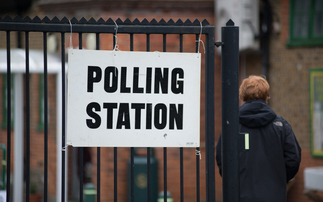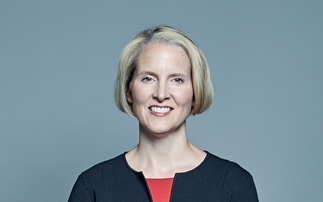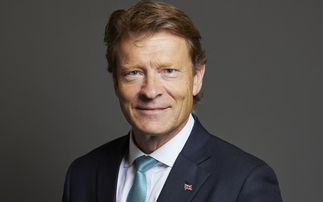One month since the Paris Agreement was reached, BusinessGreen takes a look at what's next for the historic accord - and how green businesses plan to build on the momentum created in the French capital
Today marks exactly one month since the Paris Agreement was reached at the COP 21 climate conference in the French capital. Since then, the deal has been hailed as a "watershed moment", an "historic milestone" and a "turning point in human history" by everyone from David Cameron to Richard Branson.
Now the dust has settled on the marathon fortnight of negotiations, BusinessGreen examines what's next for the crucial Paris Agreement and whether the initial hyperbole is still justified.
The formalities
At 7.25pm on December 12, after 48 hours of round-the-clock talks, the Paris Agreement was formally adopted by COP President Laurent Fabius, on behalf of nearly 200 countries.
But the consensus reached in Paris is only the first step in ensuring the treaty becomes enshrined in international law and sets the world on a pathway towards a zero carbon economy.
The Paris text was adopted by consensus at COP 21, and now each country needs to individually ratify the agreement before it enters into force in 2020, according to Nick Nuttall, head of communications for the UNFCCC.
Nuttall explains that the text itself is currently being translated into the six official languages of the UN - Arabic, Chinese, English, French, Russian and Spanish - before being sent to the Treaty section of the Office of Legal Affairs in New York in March. Following the last-minute hiccups which almost derailed the Agreement in the final hours of the Paris conference, UN officials will be working hard to ensure that the Agreement is word-perfect in every language.
Countries will be able to formally sign - and thereby confirm their participation in the Treaty - from April 22 this year, when a high-level signing ceremony will be held to celebrate the first countries to ratify. "That's when things really start happening," says Nuttall.
According to article 21 of the text the Agreement only becomes ratified 30 days after at least 55 countries, representing at least 55 per cent of global greenhouse gas emissions have signed. Theoretically, this could mean that the 2017 ratification deadline could come and go without these conditions being met, and the Paris Agreement could remain open for signatures indefinitely, Nuttall admits. The Kyoto Protocol, for instance, took eight years to ratify.
However, Nuttall thinks this anti-climatic is highly unlikely. "It's a very different scenario here [compared to Kyoto]," he says. "We are talking about a universal treaty with 190-plus governments that have adopted the agreement in Paris, so I think there's a real sense that this could move quickly."
Maintaining momentum
The Paris Agreement won't come into effect until 2020, but many campaigners, politicians and businesses are keen to using the momentum generated from the recent talks to spur early action, says Nuttall. "Everybody is very keen to make sure that things don't just stop now and then re-start in 2020," he says.
Just days after the Paris Agreement was reached more than 400 businesses, including many of the planet's largest firms, signed a joint declaration to support the goals of the new deal. Signatories to the Paris Pledge for Action have committed to taking "concrete steps" straight away to deliver on the Paris Agreement.
Meanwhile, organisations such as the Prince of Wales' Corporate Leader's Group (CLG) are dedicating 2016 to ensuring the pressure continues to mount on governments as they move towards ratifications and take the first steps in putting their national climate plans, known as Intended Nationally Determined Contributions (INDCs), into action.
"It's our role as business leaders to continue to push policy leaders and governments in order to ensure that implementation actually occurs, that these INDCs are reflected in national policy, and in new types of [public-privates] partnerships," says Sandrine Dixson-Declève, director of the CLG.
But without something as high profile as the COP21 conference to work towards, how will business groups and other campaigners manage to keep up the pressure on politicians?
Dixson-Declève argues there are plenty of key events happening throughout 2016 for business leaders to stress the importance of keeping to their Paris commitments. The first is the annual meeting of the World Economic Forum in Davos, which will sees chief executives from some of the world's most powerful countries rub shoulders with the political elite - coming just weeks after the Paris Summit climate change is bound to be near the top of the agenda.
"Davos is the first key pressure point, where CEOs and business leaders are meeting with some policy leaders and need to continue to indicate that this does make sense for business, that COP21 and the deal that we have seen so far is very important and that it goes in the right direction and we cannot slip," says Dixson-Declève.
Davos is followed by the UN signing ceremony in April, the Business and Climate Summit in London during the summer, and of course COP22 in Morocco at the end of the year. "I actually think we have enough key moments in the next year where we can continue to raise our voice and indicate that this is fundamental for moving forward," Dixson-Declève predicts.
Raising ambitions
Other campaigns are focusing on ensuring governments begin planning for the first review of their INDCs in 2018, which was included in the agreement after much wrangling. Under the text, countries will be encouraged to re-submit more ambitious emission reduction plans in response to falling clean tech costs and escalating climate risks.
For example, a group of Dutch researchers are urging countries to consider boosting the ambition of their national climate plans even ahead of the agreement's formal adoption in 2017. In a manifesto published last last month by Dutch climate think tank the Institute for European Energy and Climate Policy, the researchers argue an early increase of ambition would boost political momentum for climate action in the wake of the summit.
But Nick Molho, executive director of the Aldersgate Group, believes that rather than aiming for early improvements, the focus should be on increasing momentum for the strongest possible resubmissions in 2018.
"In the case of the EU what is required is to start building momentum now to ensure that by the time of the 2018 review we are in a position to put forward a comprehensively increased emissions reduction commitment, and that it is also used for diplomatic purposes to encourage other big emitters around the world to increase their own commitments," he says.
2016: The "year of implementation"
If last year was all about building political consensus for a climate deal, 2016 will be about putting those grand plans into action.
UN climate chief Laurent Fabius said this week that his focus for the year will be on ensuring green growth and drawing up new climate transparency rules ahead of the COP22 summit. "2015 was the year of negotiations and decisions, 2016 must be the year of implementation and action," he told Le Monde newspaper yesterday.
Alongside developing the international policy mechanisms for Paris Agreement, national governments will also be under increasing pressure to align their domestic policies with emissions reductions plans.









